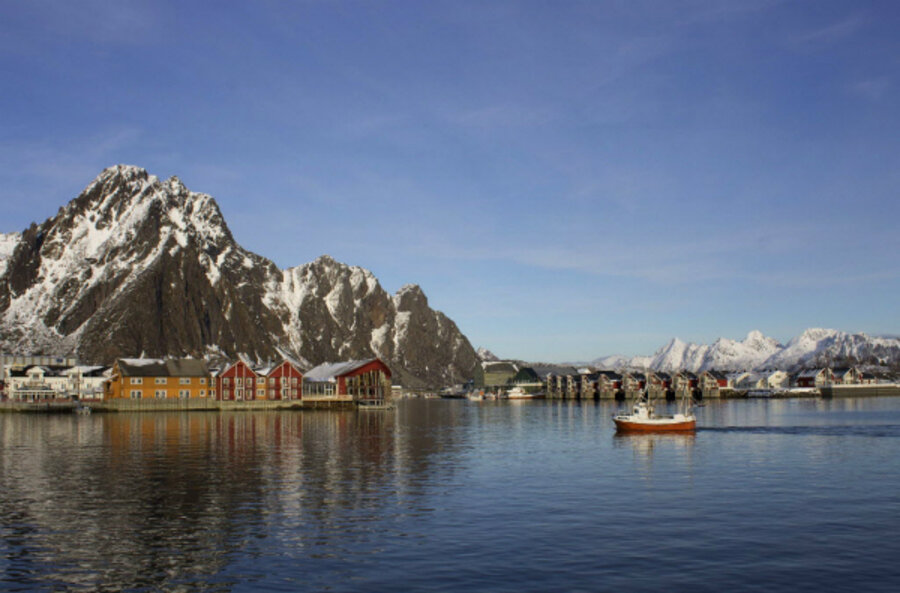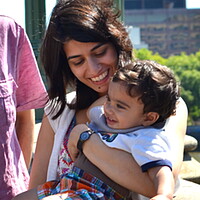4,109 miles from home, expat couple in Norway role plays each other's family members
Loading...
There are a lot of “love refugees” in Norway.
When I meet other expat couples, particularly trailing spouses like myself, we usually ask each other how we ended up in Norway. It always comes down to one thing: our partners. They are either Norwegian (who are great at falling in love overseas) or our partners aren’t natives but followed their careers here, bringing their families in tow.
There is an immediate camaraderie among expats. In leaving our comfort zones to see the world, we’ve all done something very brave.
Moving to Norway was a big decision for my husband and I. The opportunity popped up out of nowhere and it took a lot of research before we could make an informed decision to move to a place that we hadn’t even considered as a vacation spot.
Once you’ve landed overseas, the strength of your relationship is put to the test and you find that you have to rely on each other in ways that other couples don’t.
Autumn of 2011 was a tumultuous time for us. With each step that brought us closer to a life in Norway – putting our London flat on the rental market or giving notice at work – we wondered if we were making the right choice. If one of us became overwhelmed about what was ahead, the other would toughen up for the leap of faith that was taking us to Oslo.
One could say that it was faith in Norway that brought us here. Before we moved, we had a five-day reconnaissance trip during which we had to learn everything we could about the local lifestyle before the decision was official. We realized that there was no way to know whether it was going to work out unless we gave it a try, so that’s what we did.
That leap of faith was one that my husband and I also took in each other. Although we factored quality of life and cost of living into our decision to leave a comfortable home in Britain, a big part of that decision was whether we, as a couple, could make this expat adventure a success.
When you move abroad with your partner, both of you are stripped of your network of family and friends and the safety of familiar surroundings. Once you’ve landed overseas, the strength of your relationship is put to the test and you find that you have to rely on each other in ways that other couples don’t. Since moving to Norway, my husband is all I’ve got. When I had sinusitis last fall, we couldn’t count on my mom to come by with a big pot of food to help us get through the week. And when my husband was working 80-hour weeks last spring, I couldn’t pass the time by dropping by my brothers’ place to hang out with my nephews and gossip with my sister-in-law. All of those people are 4,109 miles away.
So while I’m in Oslo, my husband fills all of those roles for me. He plays Super Mario Brothers with me when I miss my nephews, and I in turn indulge him by watching the Batman movies for the third time around because he can’t watch them with his brother.
But if we’re all of a sudden getting on each other’s nerves (like all healthy couples should, every so often), there’s really no escape. If one of us tried to get some space, the other would be left in the lurch, so we don’t do this often.
It’s this precise aspect of expathood that people who are still in their comfort zones, surrounded by their usual support network, can’t understand. It’s the reason my husband and I don’t answer the phone when we’re watching a movie or exploring the rest of Europe, or when one of us is just having a bad day.
Only our fellow expats truly understand what it’s like to live in Norway, far from everything familiar (and warm). From this camaraderie a wonderful little community has emerged. Newcomers seek the wisdom of those who came before them. Those of us who have lived here awhile are finally able to ‘pay it forward’ and help those that are fresh off the boat. And then there are expats who have been here for 10, 15, or even 20 years. These are our north stars.
I’ve been in Oslo 16 months and I feel that I’m at a turning point. Without realizing it I’ve become a part of a community and have even been able to offer guidance to a few new arrivals. The most important advice isn’t anything I tell them, it’s simply that I’m still here and enjoying every day of it.
The Christian Science Monitor has assembled a diverse group of the best family and parenting bloggers out there. Our contributing and guest bloggers are not employed or directed by the Monitor, and the views expressed are the bloggers' own, as is responsibility for the content of their blogs. Saleha Mohsin blogs at Edge of the Arctic.








